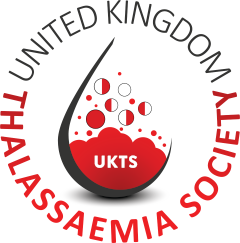Transition to Adult Care

What is transition of care?
If you’re reading this, the chances are you’ve heard the word ‘transition’ a lot lately. It’s the medical term for moving from paediatric to adult care.
How the subject of transition comes up is different from person to person. You might get a letter from your clinic telling you that your transition is going to start soon, you might have been unwell and needed specialised care from an adult clinic, or you might not be ready to transition but want to know more.
How you feel about moving to adult thalassaemia care is personal, and can be affected by loads of things. For example, how independent you are with your treatments or how close you are to your current thalassaemia team. Whether you feel anxious, laid-back or somewhere in between, no one knows your condition better than you. By taking an active role in your transition you can make sure your thalassaemia team knows what works for you.
Young people living with thalassaemia who have transitioned to adult care helped to develop resources to support other young people and their parents through transition. We hope they’ll give you some tools to make the most of your transition of care. With preparation it can be an exciting opportunity to gain more independence and take control of your changing thalassaemia care.
We asked some young people living with thalassaemia who have already made the move or are on their way, and some experienced thalassaemia team members, to share their tips for a smooth transition.
Our tips and tricks for a positive transition.
We asked some young people living with thalassaemia who have already made the move or are on their way, and some experienced thalassaemia team members, to share their tips for a smooth transition.
- Start talking about transition early. This should give you lots of time to ask questions and talk through your worries (if you have them!)
- What parts of your thalassaemia do you not feel confident with? Maybe it’s remembering which medicines to take or knowing who to speak to when you feel unwell. Speak to your parents, your thalassaemia team or us about how we can all support you with your concerns.
- Ask your paediatric team if you can visit your adult team. This will help you get to know them, and you’ll hopefully be able to have a look around the centre while you’re there!
- If you’re used to having your parents with you at your appointments, at your next one why not try having a short part of the appointment on your own?
- If your parents have always taken care of your medication, start getting involved by organising your meds for the week or ordering repeat prescriptions on your own.
- Try talking to your parents about how you feel about moving to adult care.
It’s a change for them too, so by finding out how they’re feeling you might be able to work through your worries together.
Remember that moving into adult care doesn’t mean you can’t get help from your parents or friends. You can bring them to your adult appointments just like you did before if you need their support.
Let your paediatric team know how they can improve the transition process for you!
Questions to ask your paediatric team
Here are some questions you could ask your paediatric thalassaemia team and your new adult thalassaemia team. You might already know the answers to some of these questions, and you may have some questions that aren’t included here.
Questions to ask your paediatric team
- Why do I have to transition now?
- What’s the plan for my transition?
- What can I do to prepare for my transition?
- How can I start getting more involved in my care?
- Will the adult service be different?
- How will my care change?
- How will my care stay the same?
- Will the adult clinic know what medication I am usually given?
- Will the adult clinic change my medication?
- Can I choose which centre I move to?
- If I can choose, which centres can I choose from?
- Can I visit the adult clinic to look around and meet the adult staff before I leave children’s services?
- Will someone from my old team come to my transition clinic with me?
- How long will transition take?
- What do I need to know before I move to adult services?
- Can we keep in contact once I have moved to adult services?
Questions to ask your new adult team
- What are the wards like?
- How often will I see my team?
- How many nurses will I see?
- Will I always see the same doctor or different ones?
- Can my friends or family still come to appointments with me and see me on the ward?
- Will I be the person communicating with my thalassaemia team, rather than my parents?
- What information can my thalassaemia team share with my family?
- Will I be responsible for passing on my health information to the adult team?
- Who can I talk to if there are any problems?
- Who can I call for help in a medical emergency at night or on weekends?
- Who should I contact for supporting letters regarding higher education, work or applying for benefits.
